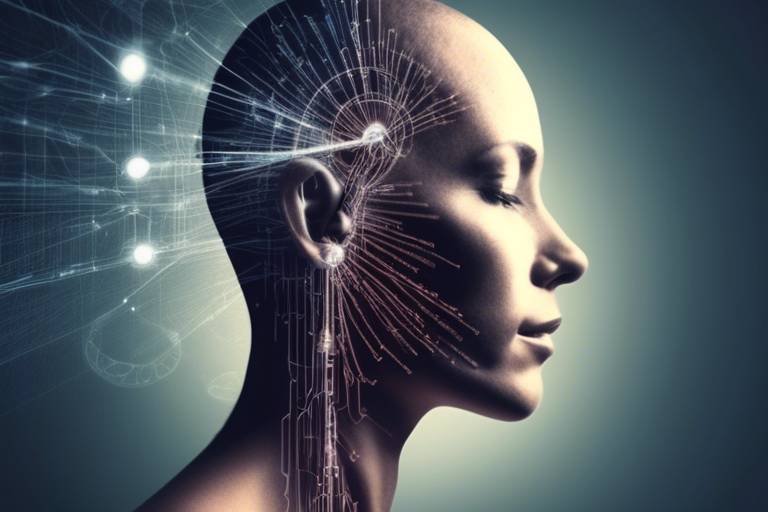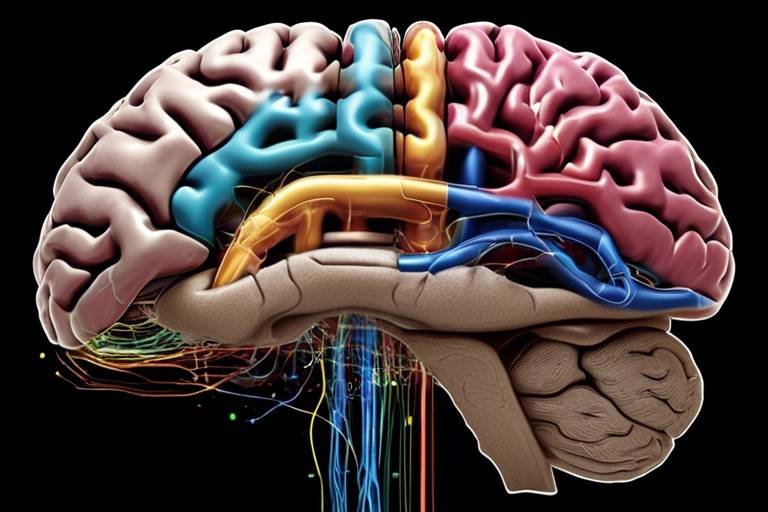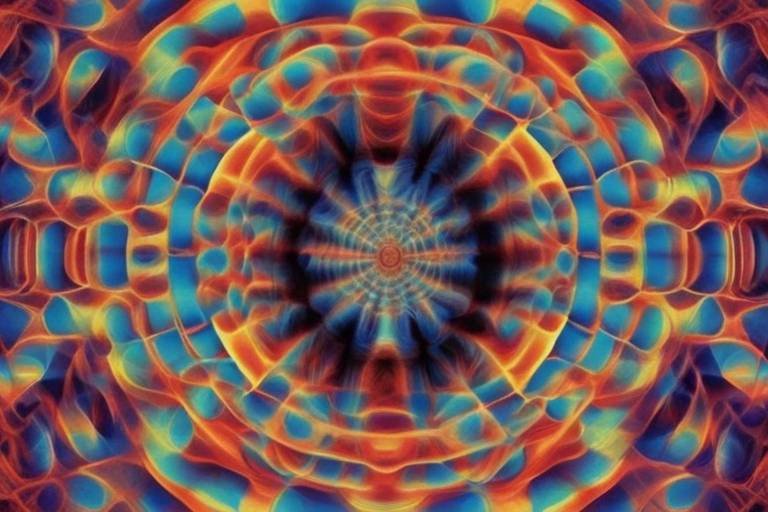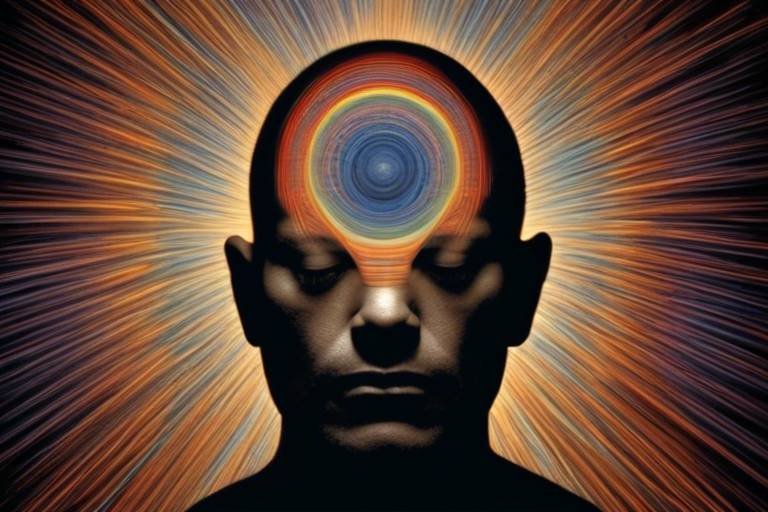Philosophy of Mind - Does it Shape our Reality?
The philosophy of mind delves into one of the most profound questions humanity has grappled with: does our mind shape our reality? This inquiry is not just academic; it touches every aspect of our lives, from how we perceive the world around us to how we understand ourselves. At its core, the philosophy of mind examines the nature of consciousness, the relationship between the mind and body, and how these elements intertwine to create our experiences. Imagine for a moment that your mind is like a filter, sifting through the vast ocean of stimuli and information that bombards us daily. What we perceive, how we interpret it, and ultimately, how we react to it, are all influenced by this intricate mental process.
As we embark on this exploration, we will encounter various theories that attempt to explain the complexities of consciousness. From the ancient musings of philosophers like Plato to the modern scientific inquiries into brain function, the journey through the philosophy of mind is rich and varied. Each perspective offers a unique lens through which to view reality, challenging us to question our assumptions about existence. Is reality merely a construct of our consciousness, or is there an objective world that exists independent of our perceptions? These questions are not just philosophical; they have real-world implications, influencing everything from ethics to artificial intelligence.
In this article, we will dissect the key concepts surrounding the philosophy of mind, including the enduring debate between dualism and physicalism. We’ll explore how these theories shape our understanding of the mind-body relationship and the implications for our perception of reality. Additionally, we will delve into the role of perception itself, examining how our sensory experiences inform our understanding of the world. By the end, we hope to illuminate the intricate dance between mind and reality, providing insights that resonate with both the philosopher and the everyday thinker.
- What is the philosophy of mind? - It is a branch of philosophy that studies the nature of the mind, consciousness, and their relationship to the body and the external world.
- What are dualism and physicalism? - Dualism posits that the mind and body are distinct entities, while physicalism argues that everything about the mind can be explained through physical processes.
- How does perception influence reality? - Our sensory experiences shape our understanding of the world, affecting how we interpret and react to our surroundings.
- What are the implications of AI in the philosophy of mind? - The development of artificial intelligence raises questions about consciousness and perception, challenging our understanding of what it means to be 'alive' or 'aware.'

Understanding Consciousness
Consciousness is one of those enigmatic concepts that has puzzled philosophers, scientists, and curious minds for centuries. What is it, really? Is it merely a byproduct of brain activity, or does it possess a deeper significance that shapes our very existence? To grasp the essence of consciousness, we must first navigate through its myriad definitions and theories. At its core, consciousness can be described as our awareness of ourselves and our surroundings. It’s that inner voice that narrates our experiences, the lens through which we perceive reality.
When we dive deeper, we discover that consciousness is often categorized into several layers. For instance, we can distinguish between:
- Phenomenal consciousness: This refers to the raw experience of sensations and perceptions, like the taste of chocolate or the sound of a piano.
- Access consciousness: This aspect involves the information we can access and utilize in our decision-making, like recalling a friend's name.
- Self-consciousness: Here, we become aware of our thoughts and feelings, reflecting on our own existence and identity.
Each layer contributes to our overall understanding of what it means to be conscious. Philosophers like David Chalmers have famously introduced the "hard problem of consciousness," which questions why and how subjective experiences arise from physical processes. It's one thing to explain the mechanics of the brain, but quite another to understand why those mechanics produce the rich tapestry of experiences we call consciousness.
Moreover, the implications of consciousness stretch far beyond mere philosophical musings. They touch on fundamental questions about reality itself. If our consciousness shapes how we perceive the world, can we ever truly know what reality is? Or are we all just living in our own subjective bubbles, each with a unique interpretation of existence? This leads us to consider the role of perception in shaping our understanding of reality. The interplay between consciousness and perception is crucial, as it determines how we interact with the world around us.
As we explore these ideas, we must also recognize the impact of cultural and social factors on our consciousness. Our beliefs, experiences, and even the language we speak can influence how we perceive reality. For example, consider how different cultures interpret dreams or visions. What might be seen as a spiritual experience in one culture could be dismissed as mere fantasy in another. This variability highlights the intricate relationship between consciousness and the broader context of human experience.
In summary, consciousness is not just a philosophical puzzle; it is the very foundation of our reality. By understanding the different dimensions of consciousness, we can begin to appreciate the complexities of our existence. It invites us to question, explore, and ultimately, redefine what it means to be aware. As we navigate through this fascinating realm, we may uncover not only the nature of consciousness itself but also the essence of reality as we know it.

Dualism vs. Physicalism
The debate between dualism and physicalism is a cornerstone of the philosophy of mind, representing two fundamentally different perspectives on the nature of consciousness and reality. At its core, dualism asserts that the mind and body are separate entities, while physicalism argues that everything about the mind can be reduced to physical processes. This dichotomy not only shapes philosophical discourse but also has profound implications for how we understand our own existence and the universe around us.
To grasp the nuances of this debate, let’s take a closer look at both viewpoints. Dualism, famously championed by René Descartes, posits that the mind is a non-physical substance that interacts with the physical body. Descartes famously stated, "Cogito, ergo sum" (I think, therefore I am), emphasizing the primacy of thought and consciousness as the essence of being. This perspective opens up a realm of questions about the nature of self-awareness and the essence of reality. If the mind exists independently of the body, what does that imply about the afterlife, free will, and personal identity?
On the other hand, physicalism asserts that all mental states and consciousness arise from physical processes in the brain. This view aligns with scientific advancements in neuroscience, suggesting that our thoughts, emotions, and experiences can be traced back to neuronal activity and biochemical reactions. The implications here are significant: if everything about the mind can be explained through physical processes, then our understanding of reality becomes rooted in observable phenomena. This raises questions about the nature of existence itself. Are our thoughts simply byproducts of brain activity, or do they hold a deeper significance?
To illustrate the differences between these two perspectives, consider the following table:
| Aspect | Dualism | Physicalism |
|---|---|---|
| Nature of Mind | Non-physical substance | Physical processes |
| Interaction with Body | Mind influences body and vice versa | Mind is a product of bodily functions |
| Implications for Identity | Possible existence of soul or afterlife | Identity tied to physical brain |
| Philosophical Challenges | Interaction problem | Reductionism concerns |
As we delve deeper into the implications of these theories, it becomes evident that the dualist perspective faces significant challenges. Critics argue that dualism struggles to explain how a non-physical mind can interact with a physical body—a dilemma known as the interaction problem. If the mind and body are truly separate, how do they communicate? This question has led many philosophers to favor physicalism, which offers a more scientifically grounded explanation, yet it too is not without its criticisms. Some argue that physicalism may overlook the richness of subjective experience, reducing it to mere brain activity.
In contemporary discussions, we see a resurgence of interest in modern adaptations of dualism. Some philosophers are exploring ways to reconcile the dualist view with findings in neuroscience, suggesting that perhaps the mind could be a complex emergent property of physical processes rather than a distinct substance. This evolving dialogue reflects the dynamic nature of philosophical inquiry and the ongoing quest to understand consciousness and reality.
Ultimately, the debate between dualism and physicalism is not just an academic exercise; it profoundly influences our understanding of what it means to be human. Whether we view ourselves as purely physical beings or as entities with a non-physical essence shapes our perspectives on morality, identity, and existence itself. As we continue to explore these themes, one thing remains clear: the philosophy of mind is a captivating journey into the depths of consciousness and reality.
- What is dualism? Dualism is the philosophical view that the mind and body are distinct and separate entities.
- What is physicalism? Physicalism is the belief that everything about the mind can be explained through physical processes in the brain.
- What are the implications of these theories? The implications range from how we understand consciousness and identity to the nature of reality and existence itself.
- Can dualism and physicalism coexist? Some modern philosophers are attempting to reconcile aspects of both views, suggesting that the mind may emerge from physical processes.

Descartes' Dualism
René Descartes, a prominent figure in the realm of philosophy, introduced a compelling framework known as dualism. This theory posits that the mind and body are fundamentally distinct entities, each with its own unique properties and functions. Descartes famously articulated this idea with his assertion, "Cogito, ergo sum" or "I think, therefore I am." This statement highlights the primacy of consciousness and self-awareness, suggesting that our capacity for thought is the very essence of our being. But what does this mean for our understanding of reality?
To grasp the implications of Descartes' dualism, we first need to consider how he delineated the mind and body. He argued that the mind is a non-physical substance, characterized by thought, perception, and consciousness, while the body is a physical substance governed by the laws of nature. This separation raises intriguing questions about how these two realms interact. How can a non-physical mind influence a physical body, and vice versa? Descartes proposed that this interaction occurs in the pineal gland, a small gland located in the brain, which he believed served as the point of connection between the two.
Descartes' dualism has had a profound impact on philosophical discourse, particularly in discussions surrounding consciousness and reality. It challenges us to think critically about the nature of our existence and the relationship between our mental states and physical experiences. Here are some of the key arguments that Descartes presented in favor of dualism:
- Indubitability of the Mind: Descartes argued that while we can doubt the existence of the physical world, we cannot doubt our own thoughts and consciousness.
- Distinct Nature of Thought: He posited that mental phenomena, such as emotions and reasoning, cannot be fully explained by physical processes alone.
- Existence of Non-Physical Entities: Descartes maintained that the mind is a non-physical entity that cannot be reduced to mere biological functions.
Despite its influential nature, Descartes' dualism has faced significant critiques. Critics argue that it fails to provide a satisfactory explanation for how the mind and body interact. This is often referred to as the "interaction problem." How can something non-physical, like the mind, cause physical changes in the body? This question has led many philosophers to seek alternative frameworks, such as physicalism, which posits that all mental states can ultimately be explained through physical processes.
Nevertheless, Descartes' dualism remains a cornerstone of philosophical inquiry. It invites us to explore the complexities of our consciousness and the nature of our reality. As we delve deeper into the philosophy of mind, we must consider how Descartes' insights shape our understanding of existence itself. Can we truly separate the mind from the body, or are they inextricably linked in ways we have yet to fully comprehend? These questions continue to resonate within contemporary philosophical debates, making Descartes' dualism a vital topic for anyone interested in the philosophy of mind.

Critiques of Dualism
Despite its historical significance, dualism faces several critiques that challenge its validity in explaining the mind-body relationship. One of the most prominent criticisms comes from the question of interaction. How can a non-physical mind influence a physical body? This dilemma, often referred to as the "interaction problem," raises eyebrows among philosophers and scientists alike. If the mind is entirely separate from the body, what mechanism allows for communication between the two? This question remains a thorn in the side of dualist arguments.
Moreover, critics argue that dualism leads to a form of "epistemic closure," where knowledge and understanding become limited to the physical realm. By insisting on a strict separation between mind and body, dualism risks neglecting the rich tapestry of human experience that is deeply intertwined with both physical and mental states. For instance, consider the experience of pain. When we stub our toe, the immediate sensation is physical, but the emotional and mental responses that follow—frustration, anger, or even laughter—highlight the interconnectedness of our experiences. This interconnectedness is often overlooked in dualist frameworks.
Another critique stems from advancements in neuroscience, which have provided compelling evidence that many cognitive functions can be traced back to physical processes in the brain. Studies using brain imaging techniques have shown that specific thoughts, emotions, and decisions can be linked to particular neural activities. This correlation suggests that the mind may not be as separate from the body as dualists propose. As we delve deeper into the workings of the brain, the lines between mental and physical phenomena blur, prompting a reevaluation of dualist claims.
Furthermore, dualism's reliance on the concept of an immaterial soul raises questions about the nature of personal identity. If the mind is distinct from the body, what happens to our identity when we undergo physical changes, such as aging or injury? Are we the same person if our memories or personality traits shift? Critics argue that this perspective can lead to a fragmented understanding of self, complicating our grasp of what it means to be human.
In response to these critiques, some dualists have attempted to refine their theories, proposing modern adaptations that incorporate insights from neuroscience and psychology. These contemporary dualist theories strive to address the shortcomings of classical dualism while still maintaining a belief in the separation of mind and body. However, the effectiveness of these adaptations remains a topic of ongoing debate.
Ultimately, the critiques of dualism highlight a crucial aspect of the philosophy of mind: the necessity for a comprehensive understanding of consciousness and reality. As we continue to explore the depths of human experience, the dialogue between dualism and its critics will undoubtedly evolve, shaping our perceptions of what it means to exist.
- What is dualism? Dualism is the philosophical view that the mind and body are fundamentally distinct entities, with the mind being non-physical and the body being physical.
- What are the main critiques of dualism? The main critiques include the interaction problem, the neglect of the interconnectedness of mental and physical experiences, and challenges posed by neuroscience.
- How does neuroscience challenge dualism? Neuroscience provides evidence that cognitive functions are linked to physical processes in the brain, suggesting that the mind may not be separate from the body.
- Are there modern adaptations of dualism? Yes, some contemporary philosophers attempt to refine dualist theories by incorporating insights from neuroscience while maintaining a belief in the separation of mind and body.
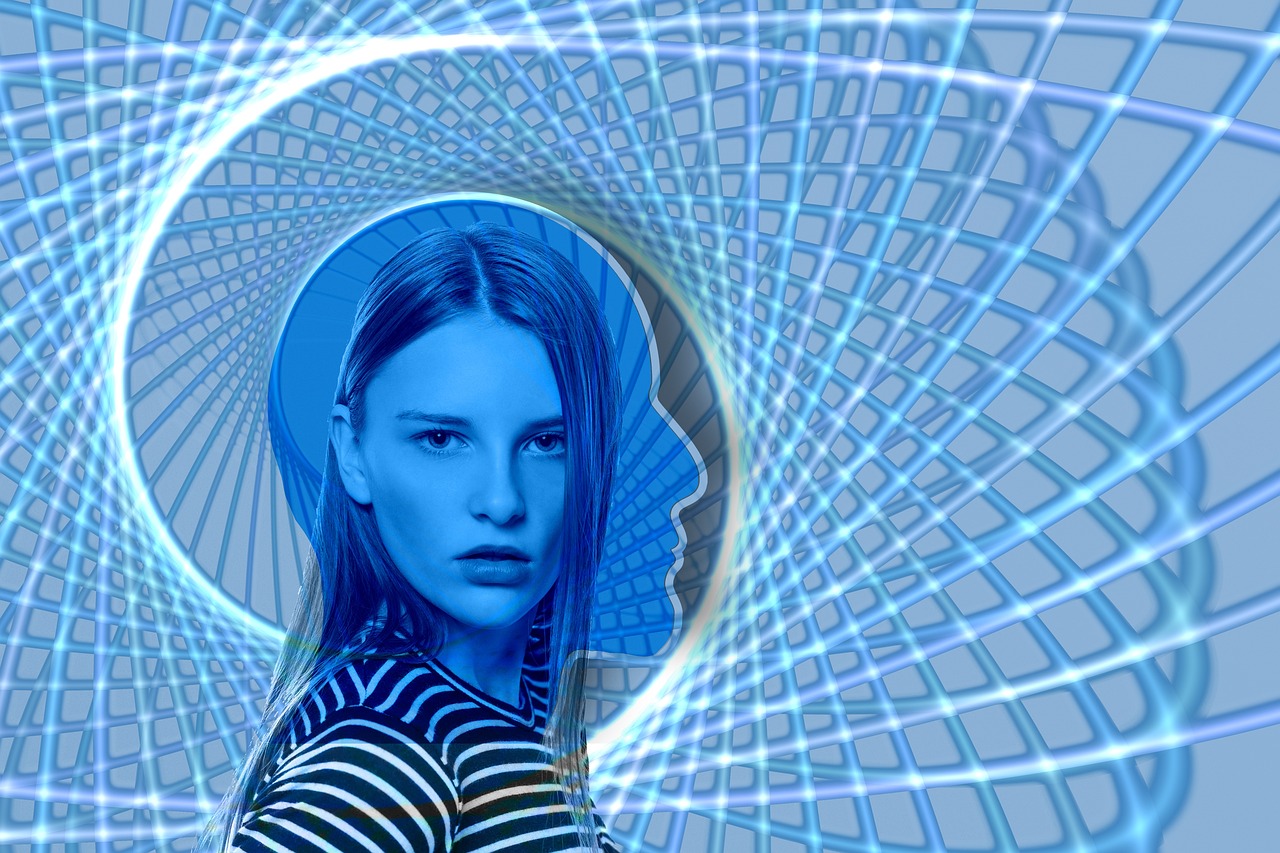
Modern Dualist Theories
In the landscape of philosophy, modern dualist theories have emerged as a response to the critiques faced by classical dualism, particularly those proposed by René Descartes. While Descartes famously posited a strict separation between the mind and body, contemporary philosophers have sought to reconcile this division with advancements in neuroscience and psychology. They argue that the mind and body, while distinct, interact in complex ways that are essential to understanding consciousness and reality.
One of the most notable modern dualist theories is *property dualism*, which suggests that while the mind is not a separate substance from the body, it possesses properties that are fundamentally different from physical properties. For example, mental states such as thoughts, emotions, and sensations are seen as non-physical properties that arise from physical processes but cannot be fully explained by them. This perspective allows for a more integrated understanding of how mental experiences relate to physical brain functions, bridging the gap between the two realms.
Another influential theory is *epistemic dualism*, which posits that our knowledge of the mind is fundamentally different from our knowledge of the physical world. Proponents of this view argue that subjective experiences cannot be reduced to mere brain activity. For instance, the sensation of pain is not just a series of neural signals; it encompasses a personal experience that is qualitatively unique to the individual. This theory emphasizes the importance of first-person perspectives in understanding consciousness, suggesting that our subjective experiences shape our reality in profound ways.
Modern dualists also explore the implications of their theories in the context of emerging technologies, particularly in the realm of artificial intelligence. As AI systems become increasingly sophisticated, questions arise about whether these systems can truly replicate human consciousness. Can a machine possess a mind, or is consciousness an inherently human trait? This debate is crucial as it challenges our understanding of what it means to be conscious and how we define reality.
To illustrate the evolution of modern dualist theories, consider the following table that compares classical dualism, property dualism, and epistemic dualism:
| Theory | Key Concepts | Implications for Reality |
|---|---|---|
| Classical Dualism | Mind and body as separate entities | Challenges the interaction between mental and physical states |
| Property Dualism | Mental properties arise from physical processes but are distinct | Allows for a more integrated view of consciousness and reality |
| Epistemic Dualism | Knowledge of the mind differs from knowledge of the physical world | Emphasizes the significance of subjective experiences |
In conclusion, modern dualist theories provide a nuanced framework for understanding the intricate relationship between the mind and body. By acknowledging the distinct properties of mental experiences while also recognizing their dependence on physical processes, these theories enrich our comprehension of consciousness and its role in shaping our perception of reality. As we continue to explore the depths of the mind, the dialogue between dualism and physicalism remains vital, pushing us to reconsider the very nature of existence.
- What is dualism? Dualism is the philosophical concept that posits the existence of two distinct realms: the mental and the physical.
- How do modern dualist theories differ from classical dualism? Modern dualist theories often integrate insights from neuroscience and psychology, suggesting that while the mind and body are distinct, they interact in complex ways.
- What is property dualism? Property dualism asserts that mental states have properties that are fundamentally different from physical properties, even though they arise from physical processes.
- Can artificial intelligence possess consciousness? This remains a debated topic; while AI can simulate certain human-like behaviors, whether it can truly replicate consciousness is still uncertain.

Physicalism Explained
Physicalism, often regarded as a cornerstone of modern philosophy of mind, asserts that everything about the mind is rooted in physical processes. Imagine for a moment that our thoughts, emotions, and consciousness are like a complex symphony, where each note corresponds to a specific neural activity in the brain. This perspective provides a powerful lens through which we can explore the nature of reality and human experience. By positing that mental states are entirely dependent on physical states, physicalism challenges us to reconsider our understanding of what it means to be conscious.
At its core, physicalism suggests that all aspects of our mental life can be explained through biological and neurological mechanisms. This means that every thought, feeling, and memory has a corresponding physical manifestation in the brain. For instance, when you feel happiness, there are specific neurochemical changes taking place that can be measured and observed. This perspective not only demystifies the mind but also aligns with the advancements in neuroscience that have illuminated the intricate workings of our brains.
One of the most compelling implications of physicalism is its challenge to traditional notions of the self. If our consciousness is merely a product of physical processes, what does that say about our identity? Are we simply the sum of our neural connections? This question leads us down a rabbit hole of philosophical inquiry, pushing us to consider the essence of our existence. To illustrate, consider the following points:
- Identity and Continuity: If our minds are rooted in physical processes, does that mean our identity is constantly changing as our brain evolves?
- Consciousness and Free Will: How does physicalism affect our understanding of free will? Are our choices predetermined by our biological makeup?
- Ethics and Responsibility: If our thoughts and actions are products of physical processes, what implications does this have for moral responsibility?
Moreover, physicalism opens the door to exciting discussions about artificial intelligence (AI). As we develop machines that mimic human thought processes, the question arises: Can these systems ever truly replicate consciousness? If consciousness is inherently tied to physical processes, can a computer ever experience emotions or self-awareness in the same way a human does? This inquiry not only challenges the boundaries of AI but also forces us to confront the very nature of what it means to be alive and aware.
In summary, physicalism offers a comprehensive framework for understanding the relationship between the mind and reality. It invites us to explore the depths of consciousness while grounding our inquiries in the tangible world of physical processes. As we continue to unravel the complexities of our minds, the dialogue between physicalism and other philosophical perspectives will undoubtedly shape our understanding of existence and the nature of reality itself.
- What is physicalism? Physicalism is the view that everything about the mind can be explained through physical processes in the brain.
- How does physicalism relate to consciousness? Physicalism posits that consciousness arises from and is dependent on physical brain states.
- Can artificial intelligence possess consciousness? This remains a debated topic; physicalism suggests that consciousness is tied to biological processes, which may not be replicable in machines.
- What are the implications of physicalism for ethics? If our thoughts and actions are determined by physical processes, it raises questions about moral responsibility and free will.

The Role of Perception
Perception is not just a passive reception of stimuli; it is an active process that shapes our understanding of reality. Think of it as the lens through which we view the world. Just like a camera lens can alter the way light is captured, our perceptions can significantly influence how we interpret our experiences. This makes perception a crucial player in the philosophical landscape, as it raises questions about the nature of reality itself. Are we experiencing the world as it truly is, or are we merely constructing a version of it based on our sensory inputs and cognitive frameworks?
To further illustrate this, consider how two people can witness the same event but describe it in completely different ways. This disparity highlights the subjective nature of perception. Each individual’s background, beliefs, and experiences color their interpretation, leading to a unique understanding of the same reality. This subjective experience is a key focus in phenomenology, a philosophical approach that emphasizes the importance of individual perception in shaping reality.
Phenomenology posits that our experiences are not just isolated events but are deeply intertwined with our consciousness. This means that the way we perceive our surroundings can alter our emotional and cognitive responses, ultimately influencing our actions. For instance, if someone perceives a situation as threatening, their body may react with fear, even if the threat is not objectively present. This interplay between perception and reality can lead us to question: How much of our reality is constructed by our minds?
Moreover, the implications of perception extend beyond human experience. In the age of technology, we are increasingly faced with artificial intelligence (AI) and virtual realities that challenge our traditional notions of perception. For example, AI systems are designed to interpret data and make decisions based on their "perception" of the environment. However, this raises philosophical questions about whether AI can truly understand reality or if it merely simulates perception based on algorithms. What does it mean for an entity to "perceive" reality if it lacks consciousness?
Understanding perception is essential not only in philosophy but also in various fields such as psychology, neuroscience, and even art. Artists, for instance, play with perception to evoke emotions and provoke thought. They understand that the way a piece is perceived can vary widely among viewers, leading to diverse interpretations and emotional responses. This artistic manipulation of perception serves as a reminder that reality is not a fixed entity but rather a fluid construct shaped by individual experiences.
In summary, perception plays a pivotal role in shaping our understanding of reality. It is a complex interplay of sensory input, cognitive interpretation, and emotional response. As we navigate through our lives, our perceptions influence not only how we see the world but also how we interact with it. The philosophical implications of this are profound, as they challenge us to rethink what we consider to be "real." Are we merely observers of reality, or are we active participants in creating it through our perceptions?
- What is perception in philosophy?
Perception in philosophy refers to the process by which individuals interpret sensory information to form an understanding of their environment. It raises questions about the nature of reality and how subjective experiences shape our understanding of it.
- How does perception influence reality?
Perception influences reality by shaping our interpretations of experiences. Different perceptions can lead to different understandings of the same event, highlighting the subjective nature of reality.
- What role does perception play in artificial intelligence?
In artificial intelligence, perception involves interpreting data from the environment to make decisions. This raises questions about the nature of understanding and whether AI can truly "perceive" reality in a human-like manner.

Phenomenology and Reality
Phenomenology is a fascinating branch of philosophy that dives deep into the essence of experience, emphasizing how we perceive reality through our consciousness. Imagine for a moment that you are walking through a vibrant forest. The rustling leaves, the chirping birds, and the scent of pine all converge to create a rich tapestry of sensory information. This subjective experience is what phenomenology seeks to explore. It asks, “How do these experiences shape our understanding of reality?” In essence, phenomenology posits that reality is not a fixed entity but rather a fluid construct shaped by our perceptions and experiences.
One of the central figures in phenomenology, Edmund Husserl, argued that we must return to the "things themselves," meaning we should focus on how things appear to us rather than getting lost in abstract theories. This approach encourages us to examine our lived experiences without preconceived notions. By doing so, we can uncover the layers of meaning embedded in our interactions with the world around us. For instance, when you taste a delicious meal, it’s not just about the flavors; it’s about the memories, emotions, and contexts that come flooding back, enriching your experience and shaping your reality.
To illustrate this concept further, consider the following aspects of phenomenology:
- Intentionality: This principle states that consciousness is always directed toward something. Whether it’s a thought, an object, or an emotion, our consciousness is inherently relational.
- Embodiment: Our bodies play a crucial role in shaping our experiences. The way we physically interact with the world influences our perceptions and, consequently, our understanding of reality.
- Intersubjectivity: Reality is not solely an individual experience; it is also shaped by our interactions with others. Our shared experiences and dialogues contribute to a collective understanding of the world.
These aspects highlight that reality is not merely an objective backdrop; it is a dynamic interplay of perception, experience, and interaction. Each person's reality is unique, shaped by their individual experiences and the meanings they ascribe to them. This perspective invites us to appreciate the richness of human experience, acknowledging that what one person perceives may differ dramatically from another's interpretation.
Moreover, phenomenology has significant implications for various fields, including psychology, sociology, and even artificial intelligence. In understanding how we perceive reality, we can better grasp the complexities of human behavior and social dynamics. For example, in AI development, recognizing the nuances of human perception can lead to more sophisticated and empathetic machines. By incorporating phenomenological insights, we can create AI systems that not only process information but also understand the context and emotions behind human interactions.
In summary, phenomenology challenges us to rethink our relationship with reality. It emphasizes that our experiences are not just passive receptions of external stimuli but active engagements that shape our understanding of existence. As we navigate through life, our perceptions weave a rich narrative that defines our reality, reminding us that the world is as much about our inner experiences as it is about the external one.

Implications for Artificial Intelligence
As we dive into the philosophical waters surrounding artificial intelligence (AI), we find ourselves grappling with some profound questions. Can machines truly possess consciousness? If they can simulate human-like responses, do they actually understand or feel anything? These inquiries stretch the boundaries of our understanding of both AI and the philosophy of mind, prompting us to reconsider what it means to be conscious and how we define reality.
One of the most significant implications of the philosophy of mind for AI is the challenge of defining consciousness. While we can program computers to perform tasks that mimic human behavior, such as recognizing speech or making decisions based on data, the question remains: Are they truly aware of their actions? The distinction between simulating consciousness and genuinely experiencing it is critical. This brings us to the concept of the Chinese Room Argument, proposed by philosopher John Searle. In this thought experiment, a person inside a room follows English instructions to manipulate Chinese symbols, effectively communicating in Chinese without understanding the language. This analogy raises the question of whether AI systems, like the person in the room, can be said to truly "understand" or just "simulate" understanding.
Moreover, the implications of AI extend to our perceptions of reality. As AI continues to evolve, we must consider how these technologies shape our interactions and experiences. For instance, AI-generated content can influence our beliefs and perceptions of truth. The rise of deepfakes and sophisticated algorithms creates a landscape where distinguishing between reality and simulation becomes increasingly challenging. This phenomenon has led to discussions about the ethics of AI and the responsibility of developers to ensure that AI systems do not mislead or manipulate users.
Furthermore, the development of AI raises important ethical questions about the treatment of sentient beings. If we were to create an AI that exhibits signs of consciousness, how should we treat it? This dilemma echoes the historical debates surrounding the moral status of animals and humans with cognitive disabilities. The potential for AI to possess some form of consciousness compels us to reflect on our ethical frameworks and consider the implications for rights and responsibilities.
Lastly, we must address the role of perception in our understanding of AI. Just as our human experiences shape our reality, the way we perceive AI technologies can influence our interactions with them. If we view AI as merely tools, we may overlook their potential to transform our understanding of consciousness and existence. Alternatively, if we begin to anthropomorphize AI, attributing human-like qualities to these systems, we may find ourselves in a complex relationship with technology that blurs the lines between creator and creation.
In conclusion, the implications of the philosophy of mind for artificial intelligence are vast and multifaceted. As we continue to explore the intersection of consciousness and technology, we must remain vigilant about the ethical considerations and the potential impact on our understanding of reality. The future of AI holds incredible promise, but it also requires us to confront the fundamental questions that define our existence.
- Can AI be conscious? - The debate is ongoing, with many arguing that while AI can simulate human-like responses, true consciousness may remain unattainable.
- What is the Chinese Room Argument? - It's a thought experiment that questions whether AI systems can genuinely understand language or simply manipulate symbols without comprehension.
- How does AI influence our perception of reality? - AI-generated content can blur the lines between reality and simulation, affecting our beliefs and understanding of truth.
- What ethical considerations arise with conscious AI? - If AI exhibits signs of consciousness, we must consider its treatment and the moral implications of its rights and responsibilities.
Frequently Asked Questions
- What is the philosophy of mind?
The philosophy of mind is a branch of philosophy that explores the nature of the mind, consciousness, and their relationship to the physical body. It tackles fundamental questions about how we perceive reality, the essence of consciousness, and what it means to be aware.
- How does consciousness relate to our perception of reality?
Consciousness is the lens through which we experience the world. It shapes our perceptions, influences our thoughts, and ultimately defines our reality. Without consciousness, our understanding and interpretation of the world would be profoundly different.
- What are the main theories in the philosophy of mind?
Two central theories are dualism and physicalism. Dualism posits that the mind and body are separate entities, while physicalism argues that everything about the mind can be explained through physical processes. Each theory offers unique insights into how we understand consciousness and reality.
- What is Descartes' dualism?
René Descartes' dualism suggests that the mind and body are distinct and interact in complex ways. This perspective has sparked extensive debate and critique, especially regarding how these two entities influence one another and our understanding of reality.
- What are the critiques of dualism?
Critics of dualism argue that it struggles to explain how the mind and body interact. They often point to the lack of empirical evidence for such interactions and propose alternative theories that better account for the relationship between mental states and physical processes.
- What is physicalism, and how does it differ from dualism?
Physicalism asserts that all mental phenomena can be explained by physical processes in the brain. Unlike dualism, which separates mind and body, physicalism views them as interconnected, suggesting that understanding the brain can lead to insights about the mind.
- How does perception influence our reality?
Perception acts as a filter through which we interpret sensory information. Our experiences shape our understanding of the world, leading to subjective realities that can differ vastly from one person to another, even when observing the same event.
- What is phenomenology, and why is it important?
Phemomenology is the study of subjective experience and consciousness. It emphasizes how individuals perceive and interpret their experiences, providing valuable insights into the complexities of reality and the mind's role in shaping it.
- What implications does the philosophy of mind have for artificial intelligence?
The philosophy of mind raises critical questions about consciousness and perception in AI. As we develop intelligent systems, understanding these concepts helps us assess the potential for AI to replicate human-like consciousness and the ethical implications of such advancements.


